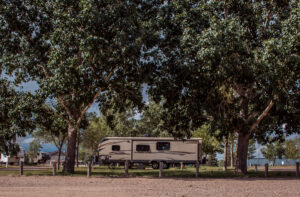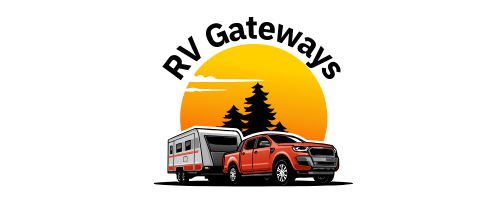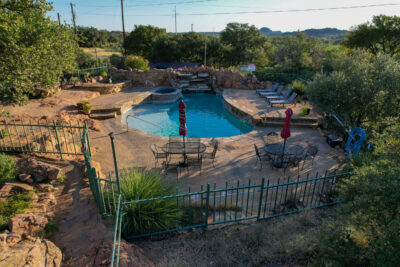RV parks have become a popular choice for travelers seeking a balance between comfort and adventure. Whether you’re a full-time RVer or just enjoying a weekend getaway, these parks offer a sense of community and access to stunning natural landscapes. However, as you plan your journey, you might find yourself asking, Why are RV parks so expensive? This question often arises as people compare the costs of RV stays to traditional accommodations like hotels or vacation rentals.
Understanding the factors behind these prices can offer valuable insight into the industry and help you make informed decisions. By examining the unique amenities, location advantages, and operational challenges that RV parks face, you’ll gain a deeper appreciation for their value—and perhaps find ways to optimize your own travel budget.
Factors Driving Up RV Park Costs

RV parks have grown increasingly popular as more people embrace the RV lifestyle. However, the rising costs of staying in these parks can catch travelers off guard. Several factors contribute to these expenses, many of which are tied to the amenities, operations, and unique demands of running an RV park. Here are the reasons behind the higher costs:
- Prime Locations
Many RV parks are situated in desirable locations, such as near national parks, beaches, or scenic highways. The demand for these prime spots leads to higher land acquisition and maintenance costs, which are passed on to the guests.
- Modern Amenities and Services
RV parks increasingly offer a range of modern amenities, such as high-speed Wi-Fi, swimming pools, fitness centers, and laundry facilities. These upgrades enhance guest experiences but require significant investment and upkeep, contributing to higher rates.
- Infrastructure Maintenance
Maintaining roads, sewer hookups, electrical systems, and water supplies specifically tailored for RVs is costly. Additionally, the wear and tear caused by heavy vehicles require frequent repairs and upgrades, adding to operational expenses.
- Regulatory Compliance
RV parks must adhere to zoning laws, safety regulations, and environmental standards. Meeting these requirements often involves costly permits, inspections, and ongoing compliance measures, which factor into the pricing structure.
- Seasonal Demand
The RV lifestyle often coincides with peak travel seasons, leading to increased demand for spaces during certain times of the year. To manage this surge and remain profitable during off-peak periods, RV parks may implement dynamic pricing models, raising rates during busy months.
- Limited Supply and Growing Demand
The popularity of RVing has surged, with more people purchasing RVs in recent years. However, the growth in the number of RV parks hasn’t kept pace, resulting in increased competition for limited spaces, which drives up prices.
- Insurance and Liability Costs
RV parks carry substantial insurance policies to protect against liability for accidents, property damage, and natural disasters. These policies can be expensive, and the costs are reflected in guest fees.
- Rising Operational Costs
General inflation, increased wages for staff, and higher utility costs contribute to the overall expense of running an RV park. These rising operational costs inevitably impact pricing.
The cost of staying at RV parks is influenced by a combination of factors, from prime locations and modern amenities to regulatory compliance and seasonal demand. While the prices may seem high, they often reflect the effort and resources required to maintain these facilities. Understanding these factors can help RVers plan their trips more effectively and appreciate the value provided by the parks they visit.
Tips to Save Money While Staying at RV Parks
RVing is a wonderful way to explore the outdoors and enjoy a sense of freedom, but the cost of staying at RV parks can add up. By adopting smart strategies, you can make your trips more affordable without sacrificing comfort or convenience. Below are some tips to help you save money:
- Join RV Membership Clubs
Membership programs like Good Sam Club, Passport America, or KOA Rewards offer discounts at participating parks. These memberships often pay for themselves after a few stays.
- Book Longer Stays
Many RV parks offer discounted rates for extended stays, such as weekly or monthly bookings. If your schedule allows, staying longer in one location can reduce your nightly cost.
- Travel During the Off-Season
Avoid peak travel times when rates are highest. Off-season travel not only saves money but also allows for a quieter, less crowded experience.
- Look for Free or Low-Cost Campsites
Utilize public lands, such as those managed by the Bureau of Land Management (BLM), or stay in state parks, which are often cheaper than private RV parks. Apps like Campendium and iOverlander can help you find these spots.
- Use Park Amenities Wisely
If the RV park includes amenities like Wi-Fi, laundry, or recreational activities, take full advantage of them to avoid paying for these services elsewhere.
- Share Costs with Fellow Travelers
Traveling with friends or family in multiple RVs? Consider splitting the cost of group sites or shared resources like firewood and propane.
- Leverage Senior and Military Discounts
Many RV parks offer discounts for seniors, veterans, or active military personnel. Always ask if a discount applies to you.
- Stick to Your Budget
Plan your route carefully to avoid unnecessary detours and extra fuel costs. Additionally, prepare meals in your RV instead of eating out to save on dining expenses.
- Look for Campground Coupons or Promotions
Some RV parks run seasonal promotions or offer coupons. Check the park’s website or social media pages for deals before booking.
- Negotiate Rates for Last-Minute Stays
If you’re flexible and arrive late in the day, some parks may offer reduced rates for unoccupied spots. It doesn’t hurt to ask!
Saving money while staying at RV parks is about making thoughtful choices and being resourceful. From booking strategically to utilizing discounts and alternative camping options, these tips can help you stretch your travel budget and enjoy more adventures on the road.
The Value Proposition of RV Parks

RV parks are more than just places to park your vehicle for the night—they are hubs of convenience, community, and comfort for travelers. Whether you’re a weekend warrior or a full-time RVer, these parks provide a blend of amenities and experiences that cater to diverse needs. Understanding the value proposition of RV parks helps explain why they remain a preferred choice for many on the road.
- Comprehensive Amenities
RV parks often provide essential utilities such as water, electricity, and sewage hookups, along with extras like Wi-Fi, laundry facilities, and recreational areas. These conveniences ensure a comfortable and hassle-free stay, making them worth the investment for travelers who prefer modern comforts.
- Prime Locations
Many RV parks are located near popular destinations, such as national parks, beaches, and historic sites. Staying at these parks allows travelers to enjoy proximity to attractions without long daily commutes, saving time and enhancing the overall travel experience.
- Safety and Security
RV parks typically offer a level of safety that is hard to find in remote or unregulated camping areas. Features like gated entrances, well-lit grounds, and on-site staff give guests peace of mind, especially for families and solo travelers.
- Community and Social Interaction
One of the unique draws of RV parks is the sense of community they foster. Group activities, communal spaces, and the opportunity to meet like-minded travelers create a welcoming and enjoyable atmosphere.
- Access to On-Site Entertainment
From swimming pools and playgrounds to hiking trails and organized events, many RV parks offer entertainment options that enhance the guest experience. These features add value by creating opportunities for relaxation and fun without leaving the park.
- Tailored Accommodations
RV parks cater to a variety of vehicles and preferences, from basic sites for smaller rigs to premium spots with extra space and scenic views. This flexibility ensures that travelers can find options that fit their needs and budget.
- Support for RV Maintenance
Some RV parks provide services like propane refills, dump stations, and repair resources. Having access to these services on-site or nearby saves time and reduces the stress of maintaining your RV on the road.
The value of RV parks goes beyond a simple place to stay; they offer a blend of practicality, comfort, and community that appeals to travelers of all kinds. Whether you’re drawn to the amenities, prime locations, or the camaraderie of fellow RVers, these parks play a pivotal role in enhancing the RV lifestyle. By understanding what they bring to the table, travelers can better appreciate and make the most of their stay.
Comparison to Alternative Accommodation Options

When planning a trip, RV parks are just one of many lodging options to consider. Comparing RV parks to alternatives like hotels, vacation rentals, or boondocking (free camping) reveals the unique advantages and trade-offs of each. This comparison can help you decide which option best fits your travel style, budget, and preferences.
- Cost
- RV Parks: While often cheaper than hotels, RV parks can still be costly, especially in prime locations or with premium amenities.
- Hotels: Typically more expensive per night, hotels offer all-inclusive amenities like housekeeping and breakfast but may lack flexibility for large families or groups.
- Vacation Rentals: Prices vary widely, but rentals can be cost-effective for extended stays or larger groups.
- Boondocking: Free or low-cost camping on public lands is the most affordable option, but it lacks amenities and requires self-sufficiency.
- Amenities
- RV Parks: Provide essential utilities (water, electricity, sewage) and often include extras like Wi-Fi, pools, and laundry facilities.
- Hotels: Offer a full suite of amenities, including room service, fitness centers, and concierge services.
- Vacation Rentals: Can offer home-like amenities such as full kitchens, laundry machines, and private yards but vary by property.
- Boondocking: No provided amenities; travelers rely on their RV’s onboard resources.
- Flexibility and Convenience
- RV Parks: Cater specifically to RV travelers, making them ideal for those who prefer dedicated hookups and social environments.
- Hotels: Ideal for urban or business travelers who prefer easy check-ins and central locations.
- Vacation Rentals: Provide flexibility for travelers seeking privacy or unique settings but may involve more planning and stricter cancellation policies.
- Boondocking: Offers unmatched freedom and privacy but requires careful planning for resource replenishment and waste disposal.
- Location
- RV Parks: Often located near natural attractions or in suburban areas, providing easy access to outdoor activities.
- Hotels: Typically found in urban centers, making them convenient for city-based trips.
- Vacation Rentals: Available in diverse locations, from bustling cities to remote countryside retreats.
- Boondocking: Found in remote, scenic areas, offering solitude and stunning views but often far from services and attractions.
- Social Experience
- RV Parks: Foster a sense of community, with opportunities to meet other travelers and participate in group activities.
- Hotels: Less emphasis on social interaction, with a more private and transactional experience.
- Vacation Rentals: Generally private, making them ideal for families or groups seeking solitude.
- Boondocking: Offers maximum privacy and minimal interaction with others.
Choosing between RV parks and alternative accommodations depends on your travel needs, budget, and desired experience. RV parks offer a unique blend of convenience, community, and amenities tailored for RV travelers.
In contrast, hotels and vacation rentals cater to different preferences, and boondocking provides the ultimate freedom for adventurers. By weighing these options, you can create a travel experience that aligns perfectly with your goals.
Impact on the RV Community

The RV lifestyle has experienced significant growth in recent years, and RV parks have played a crucial role in shaping the experiences of the RV community. These parks act as more than just a stopover—they influence social connections, travel trends, and the overall dynamics of the RV lifestyle.
- Building a Sense of Community
RV parks provide an environment where travelers can interact, share stories, and form lasting friendships. Through communal spaces, organized activities, and the sheer proximity of neighbors, RVers often feel a sense of belonging and camaraderie that enriches their journey.
- Supporting the Full-Time Lifestyle
For those who live on the road full-time, RV parks are essential. They offer a stable base with necessary amenities such as electricity, water, and Wi-Fi, making the full-time RV lifestyle both feasible and enjoyable. Some parks even cater specifically to long-term residents with discounted rates and tailored services.
- Economic Contribution
RV travelers contribute significantly to local economies by spending on attractions, dining, fuel, and repairs. RV parks act as a hub for these expenditures, connecting visitors to surrounding businesses and fostering regional economic growth.
- Adapting to Changing Demographics
The RV community has become more diverse, including younger travelers, digital nomads, and families. RV parks have adapted to meet these new needs, offering amenities like co-working spaces, playgrounds, and high-speed internet to appeal to a broader audience.
- Encouraging Environmental Awareness
Many RV parks emphasize sustainable practices, such as recycling, water conservation, and energy efficiency. These efforts encourage the RV community to adopt eco-friendly habits, helping to reduce the environmental impact of their travels.
- Addressing Challenges
Rising costs at RV parks have sparked discussions within the community about affordability and access. This challenge has inspired some RVers to seek alternative options, such as boondocking or utilizing public lands, reshaping how the community approaches travel.
RV parks are more than just a place to park—they are vital to the RV community’s social fabric, lifestyle sustainability, and economic impact. By adapting to the needs of modern travelers and fostering connections, they ensure that the RV lifestyle remains vibrant and accessible, even as challenges arise.
Conclusion
The cost of RV parks has risen due to various factors, including limited space, high demand, and increasing maintenance and operational costs. Land in desirable locations has become scarce, leading to higher rent prices for park owners, which are then passed on to customers.
Additionally, many RV parks offer extensive amenities, such as utilities, Wi-Fi, and recreational facilities, all of which contribute to higher fees. Why are RV parks so expensive? The combination of these factors, along with inflation and increased property taxes, makes staying in an RV park a significant expense for travelers.

